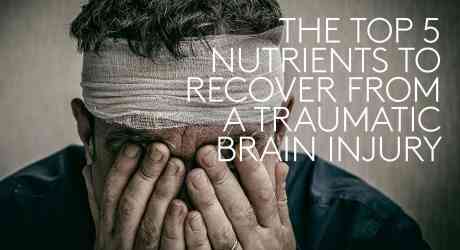NeuroTrition KIDS :: Why Food REALLY Matters For Your Child’s Brain

As a neuroscientist, I’ve always recognized childhood as a key window of brain development that can be influenced by nutrition. And as a nutritional consultant, I know how important childhood is for building a strong nutritional foundation. As long as NeuroTrition has existed, I knew that one day we would be working with children. So now, ten years after NeuroTrition was born, it is time for NeuroTrition’s little sibling, NeuroTrition KIDS, to be born!
Science tells us that encouraging healthy eating habits in kids with brain and mental health conditions can not only help reduce or control symptoms, it can also instil lifelong dietary practices.
Science tells us that encouraging healthy eating habits in kids with brain and mental health conditions can not only help reduce or control symptoms, it can also instil lifelong dietary practices. Moreover, by correcting nutritional deficiencies often caused by the medications used to address these conditions, we can help medications work better and reduce side effects — so children feel better. And let's not forget the gut-brain axis, which connects the gut and the brain (and the immune system, too). It develops in tandem during early life, and is a key piece in childhood growth.
So for these reasons, we’ve created four specialized paediatric programs that focus on four brain and mental health conditions that can affect kids — Paediatric Epilepsy, Bipolar Disorder, Stress & Anxiety and Autism Spectrum Disorder. Each of these programs are hardwired with evidence-based neuroscience and nutrition research on these conditions — and they are customizable to address your child's unique needs. I’m so excited to share just a little blog-length-appropriate taster of some of the science that we have leveraged to back up our newest programs.
1. Paediatric Epilepsy
Epilepsy is the most common neurological issue in children, affecting about 1 in 200 children. The brain is made up of millions of neurons (brain cells) that use electrical signals to control our behaviour, sensation and movements. Misfiring of neurons can spark an epileptic seizure, which causes the brain’s typical electrical signals to become disrupted.
Types of seizures differ according to the area of the brain where the neurons misfire. During my undergraduate research, I worked in a lab focused on temporal lobe epilepsy, which involves seizures in the part of the brain starting behind the ears and spanning both hemispheres. Seizures can vary from being convulsive full-body “grand mal” seizures to “absence seizures” which are often mistaken for daydreaming or not paying attention.
Since the 1920s (yes, a century!), the ketogenic diet has been used as a treatment option for children with epilepsy when seizures can’t be controlled with anti-epileptic drugs.
Many of you have likely heard of the ketogenic (keto) diet — a high fat and very low carbohydrate diet. This diet has become very popular for rapid weight loss. However, to date, research is backing the real power of the ketogenic diet in paediatric epilepsy. Since the 1920s (yes, a century!), the ketogenic diet has been used as a treatment option for children with epilepsy when seizures can’t be controlled with anti-epileptic drugs(1, 2).
Scientists studying this phenomenon, and paediatric neurologists who are using the findings to help their patients, report that the low intake of carbohydrates induces the body into a state known as ketosis to power its cells — including neurons (to read more about ketosis, check out our blog Going Keto :: What The Science Is Saying & 3 Safe Ways To Do It). After a few months of being in a ketosis state, research shows a reduction in the number of seizures by up to half (3)! Also, the Keto diet can help some epilepsy medications can work better, allowing doses to be lowered and side-effects to be reduced.
The exact mechanisms by which ketogenic diets can reduce seizures is not fully understood, but we do know that this state of ketosis in the brain appears to be neuro-protective against seizures. And what we know so far is that ketosis increases levels of GABA (4), a brain chemical that decreases the firing of neurons.
2. Stress and Anxiety
It’s not just adults who get stressed out — and we get that. Kids often feel overwhelmed and anxious. For pre-schoolers, going to day care can cause separation anxiety. As kids get older, academic pressures like homework and exams create stress. The social pressures of making friends or “fitting in” increase, too. Busy school schedules and lots of after-school clubs and activities don’t always allow kids the time to play or relax after school. And to top it all off, the foods our littles eat can dramatically impact their mood and ability to handles these stresses. So what is the science saying about food and mood — in our little ones?
Well, data suggest that children who eat diets high in processed sugary, fatty foods have an increased risk of anxiety (5). Moreover, stress and anxiety cause the release of our stress hormone cortisol and when our cortisol levels rise, our appetite for sugar intensifies (6). Thus, stress and anxiety in early life may set the stage for sugar cravings or even sugar addiction in adulthood.
Research also tells us that these tempting sugary foods are bad for our brains — causing inflammation and reducing the ability to form memories that are so needed for kids to absorb all of the information they are learning each day. But don’t worry, I have some good news. In the nutritional neuroscience world, some of the strongest evidence for reducing inflammation in the brain is for omega-3 fats. And we know that by reducing inflammation in the brain through omega-3 supplements, we can ease anxiety (7) in kids (and adults).
Harnessing the powerful links between the gut microbiome and the brain with probiotic and prebiotic foods, as well as vagal nerve activation through diaphragmatic and yogic breathing, can reduce anxiety.
When we feel stressed out and anxious, our gut responds too! In fact, the gut and the brain are in constant conversation with one another via the vagus nerve. Stress and anxiety can alter our gut microbiome (or as I call it, our gut garden) — the trillions of microbes (or gut bugs) that call our stomach and intestines home. And these gut bugs can also join in with the gut-brain conversation via the vagus. If we don’t have enough strong and healthy gut bugs, the bad gut bugs begin to multiple and grow (this is called “dysbiosis”). And you guessed it, these bad boys don’t have the nicest of messages for our brains, and can amplify our feelings of stress and anxiety (and further increase inflammation).
Childhood is the key period in life when the gut microbiota gets established, starting right at birth, so it’s super important to sow the seeds for a healthy gut garden when young. Harnessing the powerful links between the gut microbiome and the brain with probiotic and prebiotic foods, as well as vagal nerve activation through diaphragmatic and yogic breathing, can reduce anxiety (8). While the field of “nutritional psychiatry” is still in its infancy, I am so excited to see where it will go!
3. Bipolar disorder
Bipolar disorder, or “manic depression,” is characterized by pronounced mood changes that swing from highs of hyperactivity, extreme energy and elevated mood (mania) to lows of depression. Sadly, bipolar disorder first seems to manifest in adolescence, and individuals typically report their first manic episode in their teens or early twenties.
The heightened activity in the brain circuits involved with reward can drive people with bipolar disorder to often seek out rewards — including eating simple carbohydrate-laden sugary foods (9). Unfortunately, these types of “non-foods” and high sugar diets are particularly bad for people struggling with bipolar disorder. Rapid blood sugar spikes from eating lots of sugary treats can mimic symptoms of mania — increased heart rate, sweating, confusion and irritability, and may potentially cause a manic episode. We work with clients to get their blood sugar under control in order to help control their symptoms. Changes in energy levels during episodes of depression or mania can also disrupt sleep and appetite, throwing blood glucose and insulin signalling out of sync — thus needing a NeuroTritional approach.
Magnesium has a similarly calming function in brain cells to the mineral lithium — a key medication used to treat bipolar disorder.
Science says that Mediterranean and ketogenic diets are beneficial for controlling bipolar symptoms. The high levels of omega-3 fatty acids found in oily fish like salmon, sardines and mackerel, key components of the Mediterranean diet, can help with controlling mania (10). The Mediterranean diet also contains lots of foods high in the mineral magnesium — like green leafy veggies, bananas, seafood and avocados. Magnesium has a similarly calming function in brain cells to the mineral lithium — a key medication used to treat bipolar disorder.
Ketogenic diets can also help with mood stabilisation(11) and can be useful in the treatment of bipolar disorder(12), although more research needs to be done on this diet as a therapy(13) for psychiatric conditions. Ketones (produced from the metabolization of fat) increase the neurotransmitter GABA in the brain. GABA can have a calming effect and this might be the key in helping to reduce mood swings.
Perhaps the biggest area we work in to help our clients with bipolar disorder is medication compliance. Adherence to meds in bipolar disorder is abysmal — and we get it (for example, medications can make you gain upwards of 30-50 lbs in a few months). But we believe that medications are important when you have bipolar disorder, and that you need to stay on them. To help you do that, we address the side effects of prescribed bipolar disorder medications, such as metabolic syndrome and thyroid suppression. For our teen clients, this makes it more likely that they will stay on their critical medicines so they can feel better in the already tumultuous time of adolescence.
4. Neurobehavioural disorders: Autism Spectrum Disorder (and Attention Deficit Disorder)
Kids with neurobehavioural disorders such as attention deficit disorder (ADD) and autism spectrum disorder (ASD) are often extremely picky eaters with restricted diets. Their heightened sensitivities to taste, smell, colour and textures of food can lead to a very limited selection of foods being deemed “edible,” and they have strong food dislikes. Fruits and vegetables are often majorly disliked but these contain a lot of the minerals, vitamins and fibre needed to help their neuro-development — so we work with that a lot.
And speaking of fibre, let’s talk about poop, just for a bit. Gastrointestinal (gut and bowel) symptoms like constipation and diarrhea are very common in ASD. This can be caused by narrow food choices, especially if kids aren’t getting enough fibre. However, science is showing that there are also links between ASD and gut disorders like inflammatory-bowel disease(14) and leaky-gut disorder — and that there is a gut bug connection in ASD.
We know that the gut-microbiota is changed in ASD. In fact, scientists can tell how severe a child’s ASD symptoms are by looking at the types of microbiota that reside in their feces.
We know that the gut-microbiota is changed in ASD(15). In fact, scientists can tell how severe a child’s ASD symptoms are by looking at the types of microbiota that reside in their feces. And we think that altered signalling in the gut-brain axis is a key factor that can contribute to ASD symptoms(16). Promising research in mice has shown that changing the gut microbiome using the probiotic Lactobacillus reuteri can reverse some ASD-like behaviours(17) — and I’ll be eagerly waiting for more research on this important topic.
The hallmark of ADD is poor attention and constant distraction. Kids with ADD find it difficult to focus on tasks and this extends to sitting down and eating a full meal. The stimulant medications used to improve attention like Ritalin also reduce appetite — which can, in turn, affect nutrient intake and eating a balanced diet. There isn’t a conclusive link between ADD and diet (yet) but nutritious brain-boosting foods full of healthy fats like sardines and walnuts, and choline (e.g. eggs) are well-known foods that improve concentration and attention. In fact, omega-3 supplements have been approved as a medical ADD management strategy — something we at NeuroTrition fully support!
I am incredibly excited to welcome babies, toddlers, school-age children and teenagers to NeuroTrition KIDS, and work towards building happy, healthy brains for the most important brainiacs’ in your life.
- References
-
- Wheless JW. (2008). History of the ketogenic diet. Epilepsia, 49 Suppl 8:3‐5.
- Winesett SP, Bessone SK, Kossoff EH. (2015). The ketogenic diet in pharmacoresistant childhood epilepsy. Expert Rev Neurother, 15(6), 621‐628.
- Neal, E.G. and Cross, J.H. (2010). Efficacy of dietary treatments for epilepsy. Journal of Human Nutrition and Dietetics, 23, 113-119.
- Hartman, A. L., Gasior, M., Vining, E. P., & Rogawski, M. A. (2007). The neuropharmacology of the ketogenic diet. Pediatric neurology, 36(5), 281–292.
- O'Neil, A., Quirk, S. E., Housden, S., Brennan, S. L., Williams, L. J., Pasco, J. A., Berk, M., & Jacka, F. N. (2014). Relationship between diet and mental health in children and adolescents: a systematic review. American journal of public health, 104(10), e31–e42.
- Chao, A. M., Jastreboff, A. M., White, M. A., Grilo, C. M., & Sinha, R. (2017). Stress, cortisol, and other appetite-related hormones: Prospective prediction of 6-month changes in food cravings and weight. Obesity (Silver Spring, Md.), 25(4), 713–720.
- Kiecolt-Glaser JK, Belury MA, Andridge R, Malarkey WB, Glaser R. (2011). Omega-3 supplementation lowers inflammation and anxiety in medical students: a randomized controlled trial. Brain Behav Immun, 25(8), 1725‐1734.
- Yang B, Wei J, Ju P, et al. (2019). Effects of regulating intestinal microbiota on anxiety symptoms: A systematic review. General Psychiatry, 32:e100056.
- Liam Mason, Noreen O’Sullivan, Daniela Montaldi, Richard P. Bentall, Wael El-Deredy. (2014). Decision-making and trait impulsivity in bipolar disorder are associated with reduced prefrontal regulation of striatal reward valuation. Brain, 137(8), 2346–2355.
- Shakeri, J., Khanegi, M., Golshani, S., Farnia, V., Tatari, F., Alikhani, M., Nooripour, R., & Ghezelbash, M. S. (2016). Effects of Omega-3 Supplement in the Treatment of Patients with Bipolar I Disorder. International journal of preventive medicine, 7, 77.
- Bostock, E. C., Kirkby, K. C., & Taylor, B. V. (2017). The Current Status of the Ketogenic Diet in Psychiatry. Frontiers in psychiatry, 8, 43.
- El-Mallakh RS, Paskitti ME. (2001). The ketogenic diet may have mood-stabilizing properties. Med Hypotheses, 57(6), 724‐726.
- Campbell, I. H., & Campbell, H. (2019). Ketosis and bipolar disorder: controlled analytic study of online reports. BJPsych open, 5(4), e58.
- Lee M, Krishnamurthy J, Susi A, et al. (2018). Association of Autism Spectrum Disorders and Inflammatory Bowel Disease. J Autism Dev Disord, 48(5), 1523‐1529.
- Navarro, F., Liu, Y., & Rhoads, J. M. (2016). Can probiotics benefit children with autism spectrum disorders? World journal of gastroenterology, 22(46), 10093–10102.
- Li, Q., Han, Y., Dy, A., & Hagerman, R. J. (2017). The Gut Microbiota and Autism Spectrum Disorders. Frontiers in cellular neuroscience, 11, 120.
- Buffington, S. A., Di Prisco, G. V., Auchtung, T. A., Ajami, N. J., Petrosino, J. F., & Costa-Mattioli, M. (2016). Microbial reconstitution reverses maternal diet-induced social and synaptic deficits in offspring. Cell, 165(7), 1762-1775.










